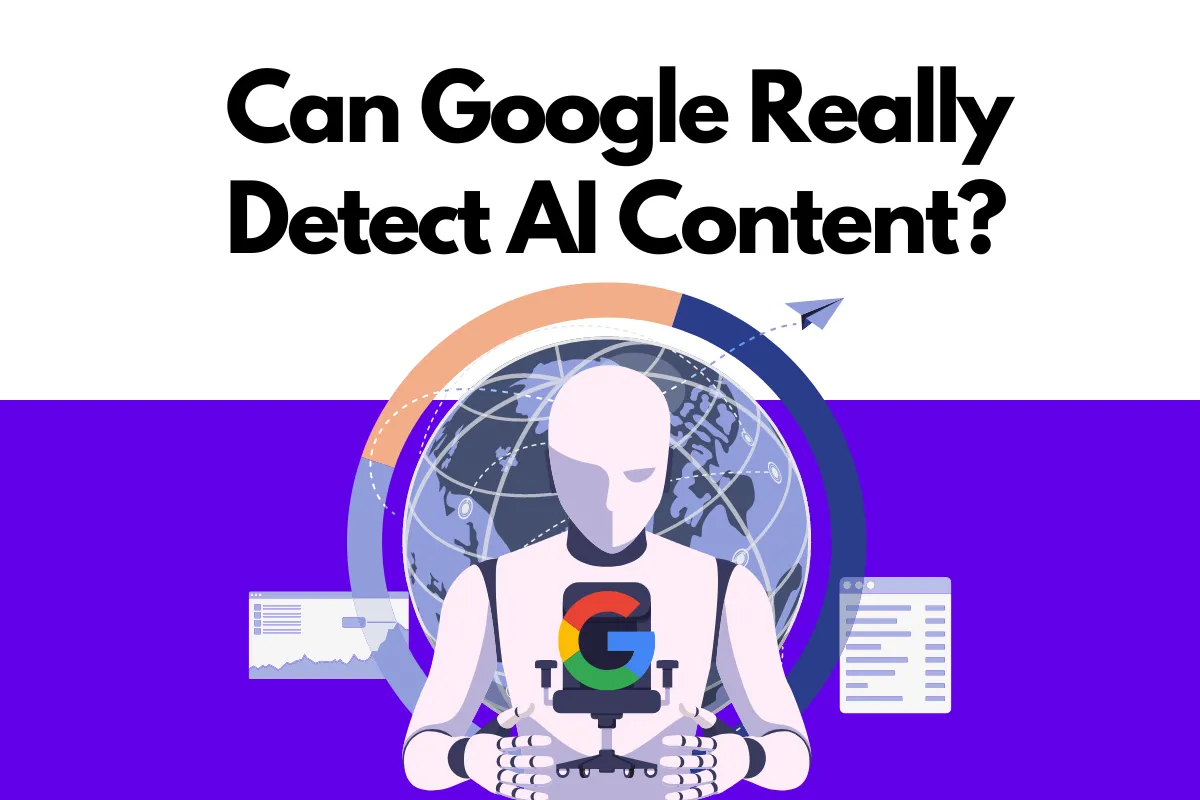 Can Google penalize AI content | With AI content generators becoming a cornerstone of content marketing, many bloggers, marketers, and WordPress users are asking the same crucial question in 2025: Can Google penalize AI-generated content? The short answer is no—if it’s done right.
Can Google penalize AI content | With AI content generators becoming a cornerstone of content marketing, many bloggers, marketers, and WordPress users are asking the same crucial question in 2025: Can Google penalize AI-generated content? The short answer is no—if it’s done right.
In this article, we’ll explore how Google treats AI content today, what risks exist, and how to ensure your AI-generated articles rank well, follow guidelines, and avoid penalties. We’ll also break down myths, share best practices, and help you leverage AI without compromising your SEO.
What Google actually says about AI content
Google’s official stance has evolved. Initially, the company expressed concern about automatically generated content that lacked value. But in early 2023 and beyond, Google clarified its position:
“Using automation—including AI—to generate content with the primary purpose of manipulating ranking in search results is a violation of our spam policies.
However, not all AI-generated content is spam.”
— Google Search Central
In other words: AI-generated content is not inherently penalized, but low-quality, spammy content is—regardless of how it was created.
When AI content can lead to a penalty
Let’s be clear: Google won’t penalize you for using tools like ChatGPT, Gemini, Claude, or AI plugins in WordPress. But it will penalize:
-
Thin content that provides no unique value
-
Content written solely to stuff keywords
-
Articles spun or copied with no originality
-
Pages created at scale without human review
-
Misleading or factually inaccurate information
AI is powerful, but without editorial oversight, it can generate generic, repetitive, or outdated content—exactly the kind Google tries to filter out.
How to safely use AI content in 2025
If you want to stay on Google’s good side, here’s what you need to focus on:
✅ 1. Add human review
Always edit and fact-check your AI-generated content before publishing. Ensure it reflects your brand’s tone, accurate data, and reader value.
✅ 2. Focus on E-E-A-T
Google prioritizes content with Experience, Expertise, Authoritativeness, and Trustworthiness. Add your real name, bio, and credentials. Cite sources. Include first-hand knowledge when possible.
✅ 3. Avoid scaling without quality
Publishing hundreds of AI articles with no oversight may trigger spam detection. Start small and ensure every post adds value.
✅ 4. Use structured data
Add schema markup, proper headings, meta descriptions, and alt tags. This helps Google understand your content better and avoid accidental misclassification.
✅ 5. Be transparent
You don’t need to say “This was written by AI,” but don’t pretend to be a doctor, lawyer, or expert if you’re not. Credibility matters in 2025 more than ever.
What about helpful content system?
Google’s Helpful Content System, part of its algorithm updates, is designed to reward people-first content.
It targets:
-
Pages designed only for SEO
-
Clickbait titles with poor on-page content
-
Mass-produced content with no original insights
If your AI content doesn’t meet user intent or offers a bad experience, it could harm your rankings—even if it isn’t «penalized» in the traditional sense.
Examples of AI content that works (And that doesn’t)
| Good AI Content | Bad AI Content |
|---|---|
| Answering specific user questions with clarity | Generic 500-word “Top 10” lists with no real insight |
| Expert-reviewed health or finance articles | AI-generated medical advice without disclaimers |
| Localized, niche content with updated info | Articles full of outdated facts and stats |
| Enhanced by multimedia, schema, and images | Plain text walls with no formatting or structure |
FAQs
Is it safe to use AI content on my WordPress blog?
Yes, if you follow best practices. Use AI tools to assist, not replace, your content strategy.
Can Google detect AI content?
Yes. Google uses machine learning to evaluate patterns and may identify content as AI-generated, but detection is not punishment. Poor quality is the issue.
Should I disclose AI usage in my posts?
Not mandatory, but transparency builds trust. For YMYL (Your Money or Your Life) topics, it’s best to include expert review and sourcing.
Can I rank high with 100% AI-generated content?
Possibly—but only if it’s high quality, useful, unique, and user-focused.
Conclusion
AI content isn’t the enemy. In fact, it can be a powerful ally in your WordPress SEO strategy—when used responsibly.
Google’s goal is clear: serve the best possible result for each search query. Whether content is written by a human or AI doesn’t matter. What matters is value.
If you’re publishing AI content just to fill your site with text, expect poor results or penalties. But if you’re using AI tools to create helpful, accurate, and engaging content, you’re on the right track.
Want to automate blog content safely and effectively?
Try NexoWrite — our AI-powered WordPress plugin that generates SEO-optimized, human-sounding blog posts using the best AI models (ChatGPT, Claude, Gemini) and built-in safeguards to meet Google’s standards.
Start creating content that ranks, engages, and converts — without writing a single line of code.

